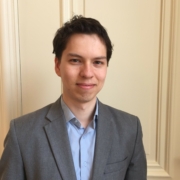HCSS Data Scientist Paul Verhagen was interviewed by leading Danish newspaper Politiken for a series of articles on Danish research in quantum physics and the risk of scientific collaborations between Europe and China (article one and article two).
The publications are in Danish; you may find a translated excerpt of Verhagen’s contribution below.
The SPOC-unit at DTU (Technical University of Denmark) is specialized in quantum optics, which is the study of the quantum properties of light. It has an array of potential military uses, explains Paul Verhagen, Data Scientist at The Hague Centre for Strategic Studies in The Netherlands.
“Quantum optics can, amongst other things, be used to send information through fiber cables, which is immediately rendered useless if intercepted by anybody but the designated receiver. It can be used to create secure communication lines, which in theory cannot be surveilled. Such technology could be used by both the military and the Communist Party, if it for instance wants to establish a secure connection between the Xinjian-region and Beijing”, Verhagen explains.
In the realm of the more exotic, scientists are working on using quantum optics to create ‘invisibility cloaks’, Paul Verhagen says. They are special, paper thin materials, which can bend the light around an object, so it appears completely invisible. Companies like Canadian Hyperstealth Biotechnology have shown prototypes of such materials, which might one day hide a fighter jet or a tank from the naked eye.
Finally, quantum optics can be used to refine quantum computers, which on paper can revolutionize everything from development of medicines to weapons or climate change mitigation. The reason is that they operate differently from normal computers. If quantum computers can take advantage of these abilities, they can solve problems which are impossible for traditional super computers, according to Verhagen.
“It would take a modern supercomputer the lifetime of the universe to break the strongest encryption keys we have today. A quantum computer would be able to do it in a matter of hours or days. The reasons being that quantum computers can test several possibilities at once and evaluate what works. It is an attribute which can be used to solve problems in everything from medicinal science to development of new technologies.”
According to Verhagen there is a fundamental asymmetry in scientific collaborations between Europe and China. Where Western universities are usually transparent about their research and its potential application, the same openness does not always apply to Chinese universities. And when it comes to military institutions, large parts of the research is classified. This means that Danish scientists cannot be certain what they are contributing to when they cooperate with Chinese military scientists, Verhagen states.
“It is a theoretical possibility that the Chinese military are conducting research projects, which are more advanced, but they don’t share publicly. Perhaps they have a specific problem, which in isolation seem benign to solve for Danish scientists, but which in a larger context can be used militarily. In this sense, Chinese scientists can take advantage of the transparency, we have in Europe, but which doesn’t exist in China and sometimes not in the US”, Verhagen says.

